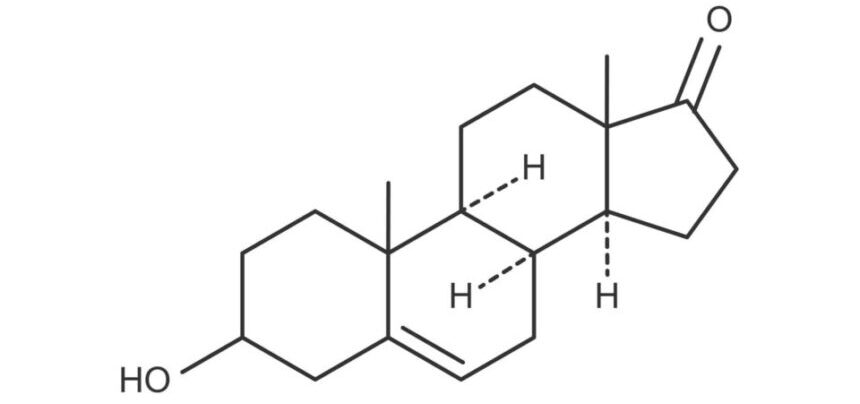Key Takeaways
- DHEA is crucial in the body’s anti-aging processes, influencing adrenal gland function and various health conditions.
- Research indicates that DHEA, sex steroids, may have anti-aging effects, potentially impacting overall health and well-being.
- Understanding the mechanism of action and the beneficial effect of DHEA in anti-aging can provide insights into its potential benefits.
- The benefits of DHEA for anti-aging, health conditions, and metabolic syndrome are supported by scientific findings and studies.
- Before considering its use, it’s important to be aware of DHEA’s safety, side effects, potential interactions, and health information.
- When discussing DHEA replacement therapy with a healthcare professional, it’s essential to consider individual health needs, concerns, and effects.
- Let’s take a deeper look at DHEA and anti-aging!
Curious about staying young and healthy? Let’s talk about DHEA, a hormone that’s said to help with aging and healing. We’ll look at how it can boost energy and make you feel better overall. Find out how DHEA might be the key to a longer, more active life.
Understanding the Role of DHEA in the Body
Hormone Production
DHEA, a hormone produced by the adrenal glands, is a precursor to male and female sex hormones. These sex hormones, also known as sex steroids, play crucial roles in various bodily functions, including reproductive health and overall well-being.
DHEA levels naturally decline with age, sparking interest in its potential anti-aging effects. As individuals grow older, their bodies produce less DHEA, which can impact the production of other vital hormones. This decline has led researchers to explore whether supplementing DHEA could help mitigate some age-related changes in bone.
Research indicates that maintaining optimal levels of DHEA may support bone health and several aspects of healthy aging. For example, adequate DHEA levels have been associated with improved insulin sensitivity and better glucose metabolism, which are important for overall health and longevity.
Potential Benefits
Supplementing with DHEA has shown promise in addressing age-related concerns such as bone density loss and muscle mass reduction. Some studies suggest it may enhance mood and cognitive function in older adults.
However, it’s essential to note that while there is evidence supporting the potential anti-aging benefits of DHEA supplementation, more research is needed to understand its long-term effects on different aspects of aging fully.
Research Findings on DHEA’s Anti-Aging Effects
Skin Health and Aging

Research suggests that DHEA supplementation may benefit skin health, potentially reducing signs of aging. For instance, studies have indicated that DHEA could improve skin hydration and thickness and reduce the appearance of wrinkles. These findings are particularly promising for individuals looking to combat age-related changes in their skin.
Some research has focused on the potential benefits of DHEA for postmenopausal women. Studies indicate that DHEA supplementation might help alleviate certain symptoms associated with menopause, such as dryness and thinning of the skin. This is significant because it highlights how DHEA can contribute to overall well-being by addressing specific concerns related to aging.
Cognitive Function and Overall Well-Being
In addition to its potential impact on skin health, studies have suggested a link between DHEA supplementation and cognitive function. Some evidence indicates that DHEA may support older adults’ brain health and cognitive performance. This finding underscores the broader effects of DHEA beyond physical appearance, highlighting its potential influence on mental well-being as part of aging therapy.
Furthermore, research has explored the effects of DHEA on muscle strength, bone density, et al. Studies have shown positive outcomes regarding these aspects among individuals receiving DHEA supplementation. Enhanced muscle strength and improved bone density are crucial components of healthy aging, emphasizing how DHEA may contribute to overall physical resilience in later stages of life.
Mechanism of Action of DHEA in Anti-Aging
Hormone Conversion
DHEA, a hormone produced by the adrenal glands, may play a role in anti-aging through its conversion into other hormones such as estrogen and testosterone. These hormones significantly impact various bodily functions, including skin health and muscle mass maintenance.
DHEA is a precursor hormone that can be transformed into these vital hormones within the body. For instance, once converted into estrogen or testosterone, DHEA might contribute to maintaining healthy bone density and muscle strength as we age.
Cellular Processes
The potential anti-aging effects of DHEA could also be linked to its influence on cellular processes associated with aging and inflammation. Research suggests that DHEA might help regulate immune responses and reduce inflammation at the cellular level (et al). Doing so could potentially slow down certain aspects of the aging process.
Studies have indicated that DHEA may impact gene expression related to longevity and aging-related pathways within cells (et al). This suggests that mechanisms underlying DHEA’s anti-aging properties involve intricate interactions at the molecular level, which are still being investigated.
Benefits of DHEA for Anti-Aging and Health Conditions
Mood and Energy Levels
Research says that DHEA might help you feel better and have more energy. This hormone is thought to help control your mood and energy, which are important for your overall feelings. If your DHEA levels are low, you might feel tired or have low energy. But if you raise your DHEA levels, some say they feel more energetic and in a better mood.
Immune Function and Cardiovascular Health
Studies have indicated that DHEA might support immune function and maintain cardiovascular health. A healthy immune system is essential for fighting illnesses, while cardiovascular health is vital for overall wellness. Some evidence suggests that DHEA could contribute to these areas by helping regulate the body’s response to stress and inflammation.
Managing Health Conditions
There’s some new evidence that says DHEA might help with things like depression and osteoporosis. More research is needed, but the first results look good. Some studies have found that taking DHEA could help with depression symptoms for some people, which could be a different way to treat it.
- Improved mood and energy levels
- Support for immune function & cardiovascular health
- Potential management of conditions like depression & osteoporosis
Safety, Side Effects, and Interactions of DHEA
Common Side Effects
It’s important to be aware of the potential side effects. Some individuals may experience acne or notice changes in their hair growth. These effects can vary from person to person, so it’s crucial to monitor any changes carefully when starting a DHEA regimen.
Long-Term Safety and Interactions
Long-term use of DHEA raises concerns about its safety and possible interactions with medications. It’s essential for individuals considering DHEA supplementation to consult with a healthcare professional before starting this regimen. This is especially true for those already taking other medications or having existing health conditions.
DHEA users should also be cautious if they have hormone-sensitive conditions such as breast cancer, uterine cancer, ovarian cancer, endometriosis, or uterine fibroids. In these cases, using DHEA could potentially interfere with hormone levels in the body and worsen these conditions.
Impact of DHEA on Weight Loss and Athletic Performance
Limited Evidence on Weight Loss
Research indicates limited evidence regarding the direct impact of DHEA on weight loss. Some studies suggest a potential influence on muscle mass and exercise performance, but its effect on shedding pounds remains uncertain.
DHEA’s role in promoting weight loss is still under investigation, with inconclusive findings. While some individuals may experience changes in body composition when taking DHEA supplements, the overall impact varies among people.
Despite anecdotal claims about weight management benefits, concrete scientific evidence to support these assertions is lacking. Thus, it’s essential for individuals considering DHEA supplementation for weight-related purposes to consult a healthcare professional for personalized guidance.
Influence on Athletic Performance

The relationship between DHEA and athletic performance also requires further exploration. Although some athletes believe that DHEA can enhance physical performance, current research does not provide substantial evidence to support this notion.
Athletes seeking ways to improve their athletic abilities should be cautious about relying solely on DHEA supplementation without comprehensive knowledge of its effects and potential risks. Athletes must prioritize safe and legal methods of enhancing their physical performance through proper training regimens and nutrition plans.
Sociobiomedical Insights from the DHEAge Study
Comprehensive Research
The DHEAge study is a comprehensive research initiative that delves into the effects of DHEA on aging. This multidisciplinary investigation spans biological, psychological, and social aspects to gain a holistic understanding of the impacts of DHEA supplementation. By integrating various disciplines, the study aims to provide in-depth insights into how DHEA influences different facets of aging.
The research examines how taking DHEA can affect our bodies and minds and how it might impact society. It wants to fill in the gaps in what we know about the good and bad things about DHEA, like how it could affect bones, insulin, healing, mood, and metabolism in older people.
Filling Knowledge Gaps
Through this extensive study, researchers aim to fill existing knowledge gaps regarding DHEA’s impact on various aspects of aging. The findings from this investigation can potentially contribute significantly to shaping future therapeutic approaches for age-related issues.
- The study encompasses diverse areas such as heart disease risk factors in older adults et al.
- It examines whether substantial evidence supports the beneficial effects of DHEA therapy.
- The research also investigates optimal dosage levels for achieving positive outcomes with minimal adverse effects.
Discussing DHEA Replacement Therapy with Your Doctor
Importance of Consulting Healthcare Professionals
Before considering DHEA replacement therapy, patients must consult healthcare professionals. A thorough evaluation of individual health status and potential risks is essential. Open communication with a doctor can help determine the appropriateness of DHEA supplementation.
It’s important to know that DHEA is a hormone made by the adrenal glands, and its levels decrease as you age. But before trying any hormone treatment, especially for anti-aging, it’s really important to talk to a doctor first. They can check your health and discuss the good and bad things about DHEA supplements.
Evaluating Individual Health Status
When discussing DHEA replacement therapy with a doctor, they will consider factors such as age, gender, medical history, and existing health conditions. For instance, individuals with adrenal insufficiency might benefit from DHEA replacement therapy under medical supervision. On the other hand, those without any hormonal deficiencies may not require this treatment.
The consultation also allows doctors to address any concerns or questions that patients may have about the potential effects of DHEA, including its role in anti-aging treatments. This open dialogue fosters better decision-making regarding whether or not to pursue DHEA replacement therapy.
Closing Thoughts
You learned about how DHEA might help with aging. The research shows it could be good for fighting age-related problems and making you feel better overall. Think about how it works, if it’s safe, and what it means for society. Talk to a doctor to see if DHEA therapy is right for you. Stay informed and take charge of your health.
Remember, knowledge is power. Stay curious, stay informed, and take charge of your journey towards healthy aging.
Frequently Asked Questions
What is DHEA, and how does it relate to anti-aging?
DHEA, or dehydroepiandrosterone, is a hormone produced by the adrenal glands. It plays a crucial role in various bodily functions and has been linked to potential anti-aging effects due to its impact on metabolism, immune function, and cellular repair.
What Are the Differences Between DHEA and 7-Keto DHEA in Terms of Anti-Aging Benefits and Risks?
DHEA and 7-Keto DHEA both offer potential anti-aging benefits, but they have different mechanisms of action. DHEA may have more potential side effects, while 7-Keto DHEA is considered safer. If you want to learn more about 7keto dhea, consult a healthcare professional for personalized advice.
Is there scientific evidence supporting DHEA’s anti-aging effects?
Research findings have shown that DHEA may have potential anti-aging effects by influencing various physiological processes such as inflammation, immune response, and metabolic regulation. However, more studies are needed to fully understand its long-term impacts on aging.
Are there any safety concerns or side effects associated with DHEA supplementation?
While DHEA supplementation is generally considered safe for short-term use at appropriate doses, it may lead to side effects such as acne, hair loss, and mood changes. Individuals with certain medical conditions should consult their healthcare provider before using DHEA.
Can DHEA impact weight loss and athletic performance?
DHEA has been studied for its potential influence on weight management and athletic performance. Some research suggests that it may affect metabolism and muscle strength; however, individual responses can vary widely.
What factors should be discussed with a doctor when considering DHEA replacement therapy?
Before starting DHEA replacement therapy or supplementation regimen, individuals should discuss their medical history, including any existing health conditions or medications, with their healthcare provider. It’s important to address potential interactions and determine the appropriate dosage based on individual needs.

